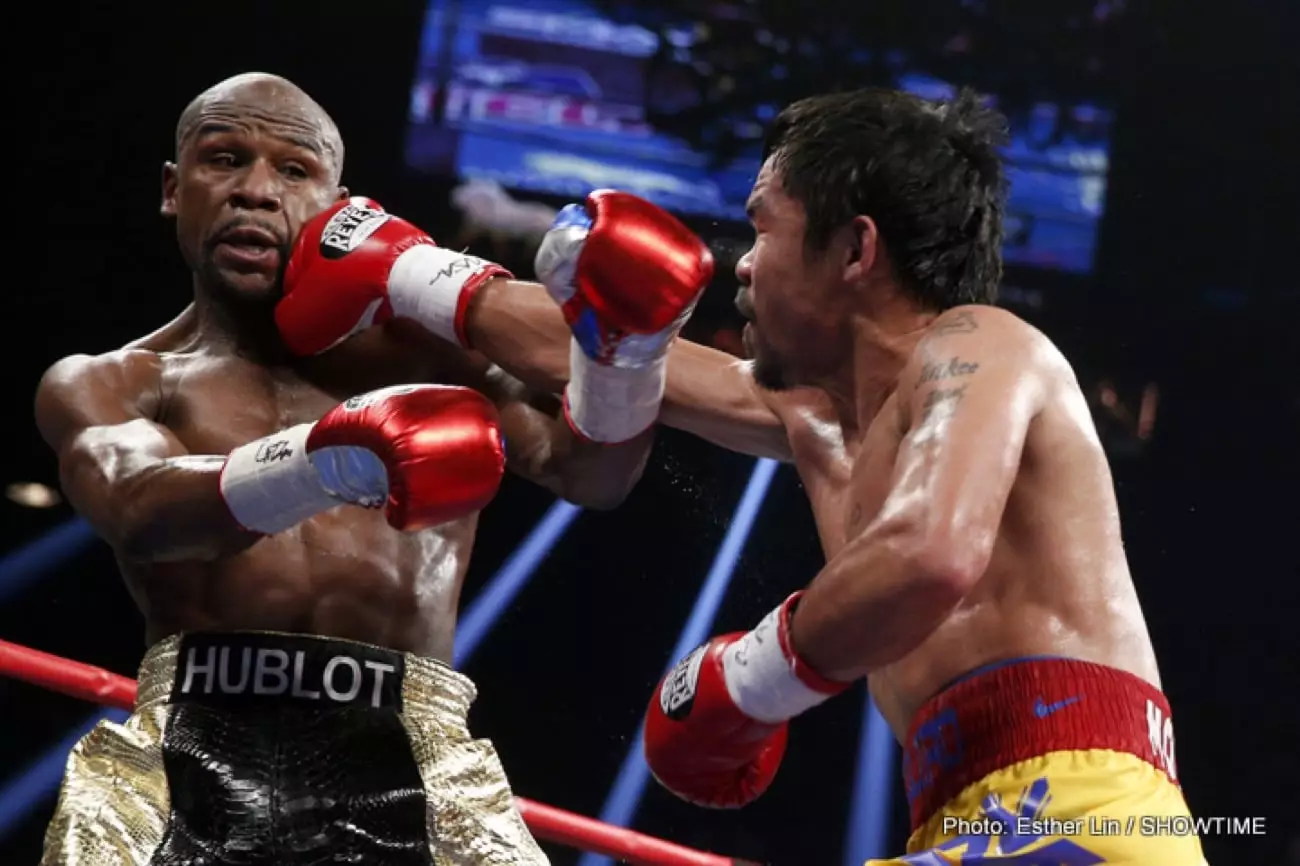Boxing has a long and storied history filled with thrilling matchups and explosive rivalries. Each generation boasts its own “Fight of the Century” — contests that promise to be nothing short of spectacular. Among these legendary pairings, Muhammad Ali versus Joe Frazier stands out as an iconic battle that truly lived up to the moniker when they clashed in 1971. The intensity of that fight, both in terms of athletic prowess and cultural significance, set a benchmark for future bouts. However, the expectations surrounding other monumental showdowns have not always translated into the electrifying action fans hope for. A glaring example of this discrepancy occurred a decade ago when two of boxing’s most celebrated figures, Floyd Mayweather and Manny Pacquiao, finally squared off in a match that was met with unmatched anticipation but fell short of its lofty expectations.
A Decade of Build-Up
In retrospect, the Mayweather-Pacquiao fight was almost a victim of its own hype. It had been a long five years since fans first wanted to see the featherweight champs test their skills against each other. Initially set to occur in the early 2010s, the bout became emblematic of boxing’s growing trend of delaying matchups until fighters’ primes were behind them. The excitement surrounding its eventual announcement was palpable; fans and pundits alike dared to dream of how it might unfold. Yet, as the fight approached, cracks began to show in that enthusiasm. Expectations soared high, buoyed by both fighters’ incredible records and showmanship. The fight, branded as the “Battle for Greatness,” was set in Las Vegas, where the illustrious Las Vegas Strip awaited the spectacle.
The Reality of the Fight
As fight night arrived, the reality was far less thrilling than the hype suggested. Mayweather, at age 38 with an unblemished record of 47-0, faced a slightly younger Pacquiao, famed for his relentless aggression and explosive speed. It quickly became apparent that this bout would not deliver the fireworks that fans had anticipated. Unknown to the viewing public at the time, Pacquiao’s training was marred by a shoulder injury that would ultimately affect his performance. Furthermore, the post-fight revelations surrounding Mayweather’s IV infusion added to the controversial undertones of what was meant to be a crowning clash of titans.
As the bout unfolded, it became increasingly evident that the fight was more a defensive showcase than a fierce competition. Mayweather, known for his tactical acumen, effectively nullified Pacquiao’s offensive capabilities with his defensive tactics. While some may praise Mayweather’s ability to control the fight, the reality was far less entertaining for those hoping for a dramatic showdown. In the end, he won by unanimous decision, with scores of 118-110, 116-112, and 116-112 — a decisive yet uninspired victory leaving fans longing for a more competitive match.
Faded Euphoria and Lingering Discontent
The outcome, while significant in establishing Mayweather’s place in boxing history, left a bitter taste in the mouths of fans worldwide. Pacquiao’s supporters, particularly in the Philippines, felt robbed of an opportunity to witness a defining moment for their champion. The widespread disappointment underscored a larger issue within boxing: the risk of inflated promises unfolding into tepid reality. In the years following this increasingly scrutinized fight, conversations surrounding a potential rematch fizzled out, leaving many to wonder if the moment had been lost forever.
Years later, the echoes of that discontent endure, reminding boxing enthusiasts of the perils of building a potentially transformative fight on a shaky foundation of hype. Boxing’s allure lies in its unpredictability, where even the mightiest hopes can be dashed by unforeseen circumstances and the passage of time. As fans reflect on the Mayweather-Pacquiao experience, they recognize it not just as a missed opportunity, but as a stark reminder of the fine line between anticipation and satisfaction, and how sometimes the fight we dream of is not the fight we get.


Leave a Reply